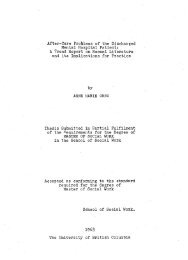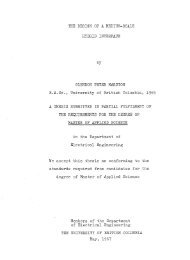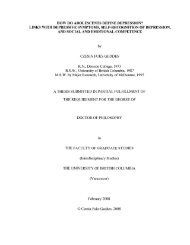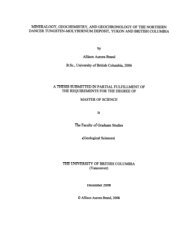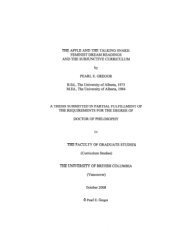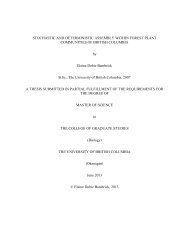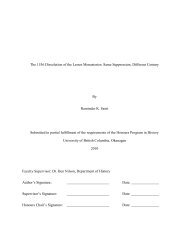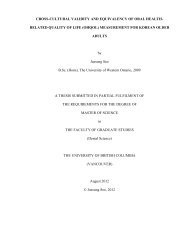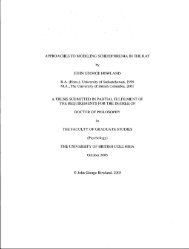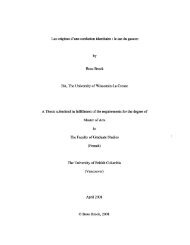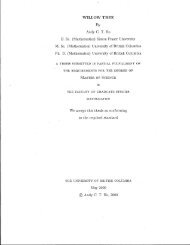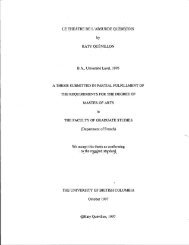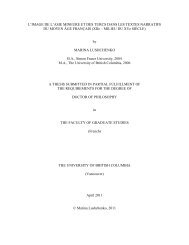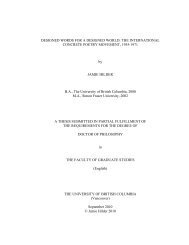A STUDY OF THE THEORY OF APPRAISAL FOR SELECTION By ...
A STUDY OF THE THEORY OF APPRAISAL FOR SELECTION By ...
A STUDY OF THE THEORY OF APPRAISAL FOR SELECTION By ...
You also want an ePaper? Increase the reach of your titles
YUMPU automatically turns print PDFs into web optimized ePapers that Google loves.
judiciary has developed a complex system of common and positive<br />
law to guide the process. History, on the other hand, is<br />
developed in an informal way, with a less rigorously defined<br />
setting, more subtle social consequences, and, because of the<br />
destruction or loss of records inevitable with the passage of<br />
time, less available evidence. Because of these factors, its<br />
standard of proof is rarely higher than a balance of<br />
probabilities. In order to establish historical proof, however,<br />
history has the same need for accurate and authentic evidence as<br />
the law. For this reason, the standards set by the legal<br />
profession can be flexibly applied to historical inquiry as well.<br />
Primarily, legal rules provide exceptions to the use of hearsay<br />
evidence, and delineate an acceptable authentication process of<br />
evidence by establishing admissibility criteria. While the rules<br />
primarily apply to government and business records, the various<br />
Canadian evidence acts have defined the concept of business so<br />
broadly that it includes all forms of organized activity. <strong>By</strong><br />
extension, then, the rules also apply to private records as well.<br />
The common law has established that hearsay evidence is<br />
inadmissible because it fails to guarantee accuracy of facts. It<br />
does not proceed from personal knowledge of the witness, but from<br />
repetition of what the witness has heard from others. The value<br />
of hearsay evidence thus derives, not from the credibility of the<br />
witness, but from the veracity and competence of other people.<br />
Such testimony inhibits the establishment of truth because of the<br />
court's<br />
20



